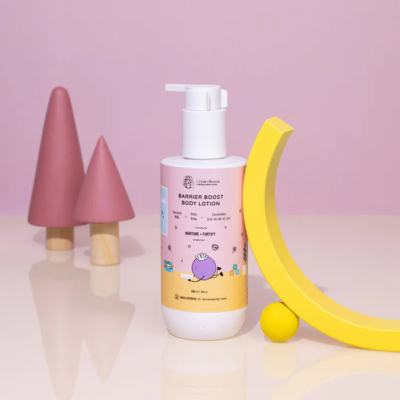Bananas are not only a delicious and versatile fruit, but they also offer numerous health benefits. Whether you’re looking to shed a few pounds or maintain a healthy weight, incorporating bananas into your diet can be a smart choice. In this blog, we will explore the calorie content of bananas and provide valuable dieting tips on how to incorporate this nutritious fruit into your daily routine.
The Calorie Content of Bananas
Bananas are a great choice for those watching their calorie intake. On average, a medium-sized banana contains approximately 105 calories. However, it’s important to note that the calorie content may vary depending on the size and ripeness of the banana. Ripe bananas tend to have more calories than unripe ones.
The good news is that bananas are low in fat and cholesterol-free. They are also packed with essential vitamins, minerals, and dietary fiber. The high fiber content in bananas helps to keep you feeling fuller for longer, reducing the chances of overeating.
Dieting Tips How to Incorporate Bananas
Now that we know bananas are a relatively low-calorie fruit, let’s explore some practical dieting tips on how to include them in your diet:
As a Snack:
Bananas make for a convenient and nutritious snack. They come in their own natural packaging and are easy to carry around. When hunger strikes between meals, reach for a banana instead of reaching for unhealthy snacks. The fiber and natural sugars in bananas provide a quick energy boost without the guilt.
Smoothies and Shakes:
If you enjoy a refreshing smoothie, bananas are an excellent addition. Blend a ripe banana with your choice of fruits, yogurt, and a liquid base like almond milk. This creates a delicious and satisfying beverage that can replace a meal or serve as a post-workout recovery drink.
Baking and Cooking:
Bananas can be a healthier alternative to butter or oil in baking recipes. Mashed bananas add moisture, natural sweetness, and fiber to muffins, bread, and pancakes. You can even use bananas as a substitute for eggs in vegan recipes. Experiment with banana-based recipes to enjoy guilt-free treats.
Oatmeal Toppings:
Sprinkle sliced bananas on top of your morning bowl of oatmeal. They add natural sweetness and a creamy texture, making your breakfast more enjoyable. The fiber in bananas also aids in digestion and promotes a healthy gut.
Frozen Treats:
Freeze ripe bananas and blend them to create a creamy and delicious ice cream-like dessert. You can enjoy it as is or customize it by adding cocoa powder, peanut butter, or other fruits. This guilt-free treat is a healthier alternative to traditional ice cream.
Moderation and Balance
While bananas are a healthy food choice, it’s essential to remember that moderation and balance are key. Incorporate bananas into your diet as part of a balanced meal plan that includes a variety of fruits, vegetables, lean proteins, and whole grains.
If you’re watching your calorie intake, keep track of the number of bananas you consume daily to ensure you stay within your target range. Remember, bananas are just one component of a well-rounded diet.
Bananas are a nutritious and delicious fruit that can be a valuable addition to your diet, whether you’re trying to lose weight or maintain a healthy lifestyle. With their low calorie content, high fiber, and natural sugars, bananas provide energy and satisfaction without compromising your diet goals.
Nutritional Benefits of Bananas
Apart from being low in calories, bananas offer a range of nutritional benefits that make them an excellent choice for a healthy diet. スーパーカマグラ for healthy health and boost your immunity, this is the one you need.
Potassium:
Bananas are well-known for their high potassium content. Potassium plays a vital role in maintaining healthy blood pressure levels and heart function. Consuming bananas regularly can help reduce the risk of heart disease and stroke.
Vitamin C:
Bananas contain a good amount of vitamin C, which is an antioxidant that helps protect cells from damage and supports a healthy immune system. Incorporating bananas into your diet can contribute to your daily vitamin C intake.
Vitamin B6:
Another essential nutrient found in bananas is vitamin B6. This vitamin is involved in various bodily functions, including the production of red blood cells and neurotransmitters. It also supports a healthy immune system.
Magnesium:
Bananas are a source of magnesium, a mineral that plays a crucial role in maintaining healthy bone structure and energy production. Consuming bananas can help meet your daily magnesium requirements.
Precautions and Considerations
While bananas are generally safe and healthy for most people, there are a few considerations to keep in mind:
Portion Control:
Although bananas are a nutritious fruit, they still contain calories. If you’re on a calorie-restricted diet, it’s important to be mindful of your portion sizes. Enjoy bananas in moderation as part of a balanced meal plan.
Blood Sugar:
While bananas have a moderate glycemic index, meaning they don’t cause a sharp spike in blood sugar levels, individuals with diabetes or those managing blood sugar should monitor their intake and consult with a healthcare professional for personalized guidance.
Allergies:
Some individuals may be allergic to bananas. If you experience symptoms like itching, swelling, or difficulty breathing after consuming bananas, seek medical attention.
Ripeness:
The ripeness of bananas affects their nutritional content and taste. Ripe bananas are sweeter and have a higher calorie content compared to unripe ones. Choose bananas according to your taste preferences and dietary needs.
Incorporating bananas into your diet can be a smart choice for weight management and overall health. With their low calorie content, high fiber, and various essential nutrients, bananas offer a range of benefits. Whether enjoyed as a snack, blended into smoothies, used in baking, or added to breakfast dishes, bananas provide a nutritious and delicious option for any diet plan.
Remember to consume bananas in moderation, considering your individual calorie and nutritional requirements. Embrace the versatility of bananas and experiment with different ways to enjoy this fantastic fruit as part of a well-balanced and varied diet.





